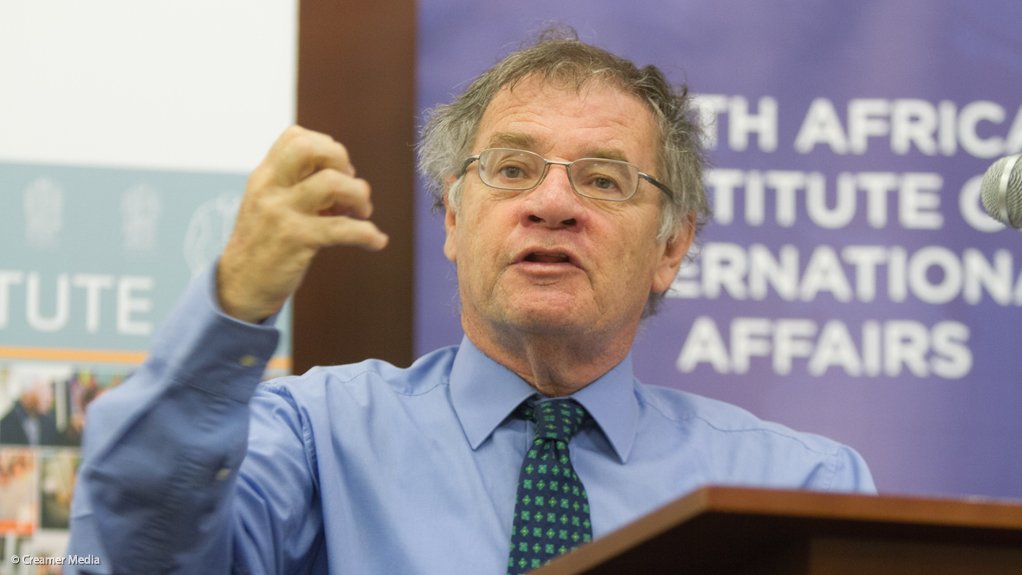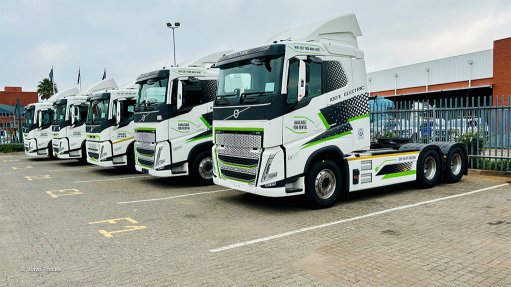Davis committee homing in on corporate tax avoidance


Dennis Davis: Utterly scandalous for corporates to bemoan public-sector corruption, while failing to pay their fair share
Photo by Duane Daws
The revenue implications for South Africa of ‘base erosion and profit shifting’ by corporate taxpayers are firmly in the crosshairs of the Davis Tax Committee (DTC) and Judge Dennis Davis hinted last week that recommendations were being considered to “detect and deter” tax-avoiding financial flows.
Speaking at a G20 study group hosted jointly by the South African Institute of International Affairs and the University of the Witwatersrand’s Mandela Institute, Davis said the commission was not in a position to quantify the revenue being forfeited, but that he suspected the figure to be material.
“Anybody who is a tax planner, which I was once upon a time, will know well that most companies, one way or another, seem to be able to use double-tax treaties and tax havens very effectively,” he quipped.
There was still a material gap between South Africa’s nominal corporate tax rate of 28% and the effective tax rates being paid by companies. Between 2005 and 2011, the effective tax rate for all sectors was only 18.2%, while it was only 13.7% for the mining sector, Davis revealed.
The DTC, whose formation was announced by former Finance Minister Pravin Gordhan in February 2013, had been set up to assess South Africa’s tax policy framework and its role in supporting the objectives of “inclusive growth, employment, development and fiscal sustainability”.
Included in its terms of reference was a mandate to review the corporate tax system, with special reference to the efficiency of the corporate income tax structure; tax avoidance; tax incentives to promote developmental objectives; and average effective corporate income tax rates in the various sectors of the economy.
With regard to tax avoidance, the committee had been aksed to evaluated base erosion and income splitting and profit shifting, including the tax bias in favour of debt financing.
Davis described as “utterly scandalous” the bemoaning by corporate South Africa of corruption in the public sector, while “not paying their fair share”. It was also essential for South Africa, as a developing economy, to safeguard its tax base if it had any hope of matching the “majestic ambitions” of the Constitution to provide for a “dignified life” for all its citizens.
Warnings that a further tightening of corporate tax rules would deter investment were dismissed as “quite ridiculous”, especially in a context where tax authorities globally were also moving to deal with the leakages that had arisen from financial globalisation.
Some of the recommendations could have consequences “for places like Mauritius”, which appeared to have emerged as a favoured destination for South African firms looking to reduce their tax burden. “But to be perfectly honest, my interest is South Africa and what I am particularly interested in is ensuring that our finances are in far better order than they are now,” Davis argued.
He warned that South Africa’s current financial balances were both precarious and unsustainable and that further slippages in the Budget deficit would have serious implications for South Africa’s credit rating and for the level of interest payments.
Weak economic growth and, by implication, revenue growth impacted on both taxation and expenditure, as the yearly shortfall moved above R150-billion.
Davis said that it was clear that consumption expenditure had to be reined in, along with “shameful” levels of corruption, noting that a R20-billion curbing of corruption equated to a 1% increase in the value-added tax (Vat) rate.
Besides moves to close the gap between nominal and effective rates of direct taxation for companies and individuals, the DTC was assessing other remedies to begin narrowing the deficit and reducing the interest burden on government debt.
“But every tax reform has its problems,” Davis warned. For instance, raising the individual tax rate for high-income earners from 40% to 45% would only realise about R4-billion in revenue, while an increase in Vat from 14% to 16%, while raising far more revenue, would face strong political headwinds.
A focus on base erosion and profit shifting by corporates, thus, appeared likely to be included in the eventual recommendations, notwithstanding that it would require that South Africa receives strong cooperation from other national tax authorities.
“If you say to me corporates are entitled to reduce their tax to a minimum – that’s true. But please understand, we also have Section 31 of the Income Tax Act, which deals with thin capitalisation and transfer pricing and those particular sections then need to be applied.
“But the biggest single problem is detection. If you don’t know where it’s going, how do you in fact implement sections of the Act?” Davis asked, adding that the tax authorities should have a right to know when a company was making use of a tax haven.
In the context of chronically high levels of inequality, wealth taxes were also being considered, including a tightening of estate duties.
“It is certainly something to think about in a country with such stark inequality . . . that you’ve got to have at least one tax that actually says: ‘Look, why do you need another R100-million?’.”
Comments
Press Office
Announcements
What's On
Subscribe to improve your user experience...
Option 1 (equivalent of R125 a month):
Receive a weekly copy of Creamer Media's Engineering News & Mining Weekly magazine
(print copy for those in South Africa and e-magazine for those outside of South Africa)
Receive daily email newsletters
Access to full search results
Access archive of magazine back copies
Access to Projects in Progress
Access to ONE Research Report of your choice in PDF format
Option 2 (equivalent of R375 a month):
All benefits from Option 1
PLUS
Access to Creamer Media's Research Channel Africa for ALL Research Reports, in PDF format, on various industrial and mining sectors
including Electricity; Water; Energy Transition; Hydrogen; Roads, Rail and Ports; Coal; Gold; Platinum; Battery Metals; etc.
Already a subscriber?
Forgotten your password?
Receive weekly copy of Creamer Media's Engineering News & Mining Weekly magazine (print copy for those in South Africa and e-magazine for those outside of South Africa)
➕
Recieve daily email newsletters
➕
Access to full search results
➕
Access archive of magazine back copies
➕
Access to Projects in Progress
➕
Access to ONE Research Report of your choice in PDF format
RESEARCH CHANNEL AFRICA
R4500 (equivalent of R375 a month)
SUBSCRIBEAll benefits from Option 1
➕
Access to Creamer Media's Research Channel Africa for ALL Research Reports on various industrial and mining sectors, in PDF format, including on:
Electricity
➕
Water
➕
Energy Transition
➕
Hydrogen
➕
Roads, Rail and Ports
➕
Coal
➕
Gold
➕
Platinum
➕
Battery Metals
➕
etc.
Receive all benefits from Option 1 or Option 2 delivered to numerous people at your company
➕
Multiple User names and Passwords for simultaneous log-ins
➕
Intranet integration access to all in your organisation



















